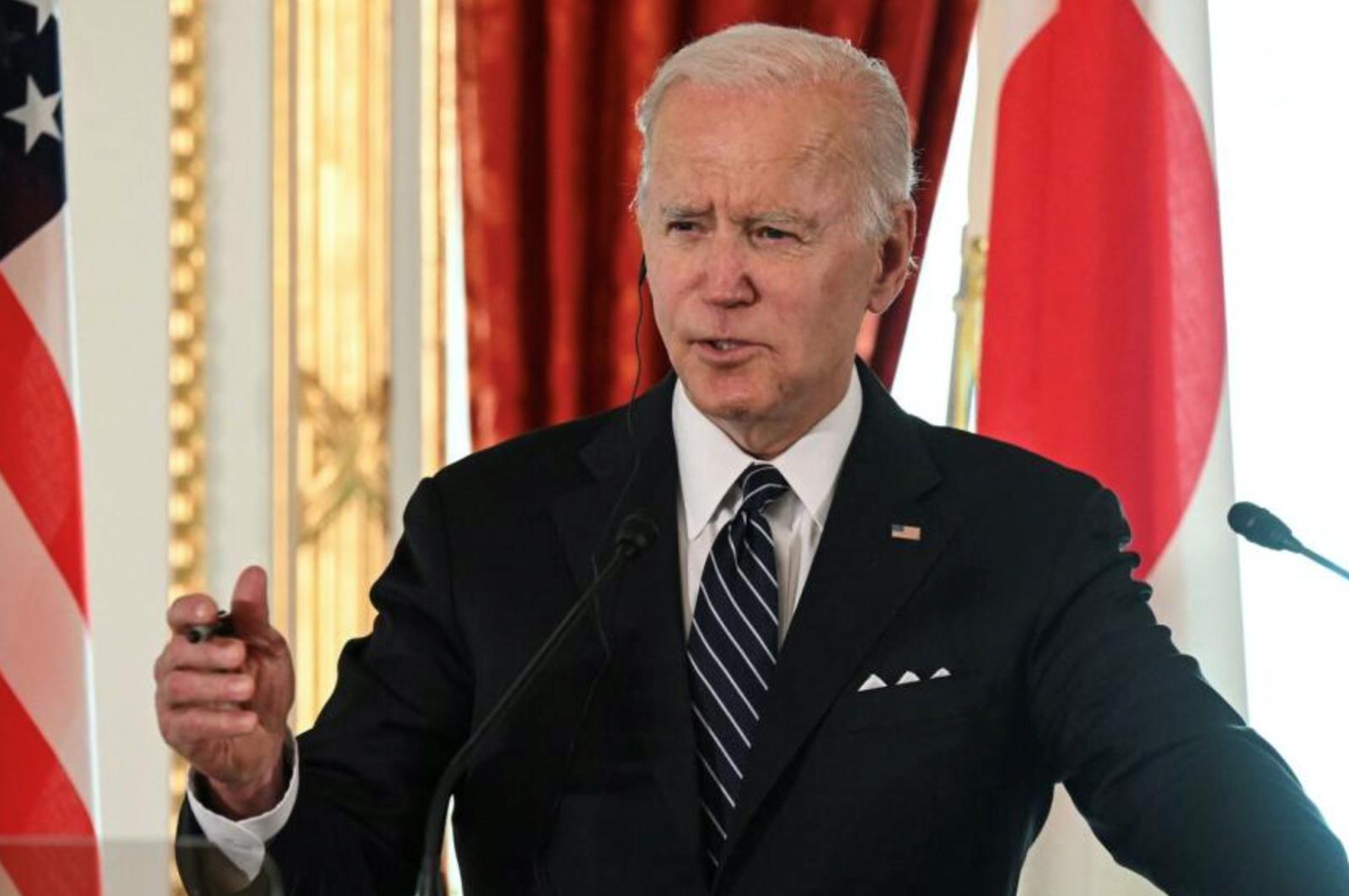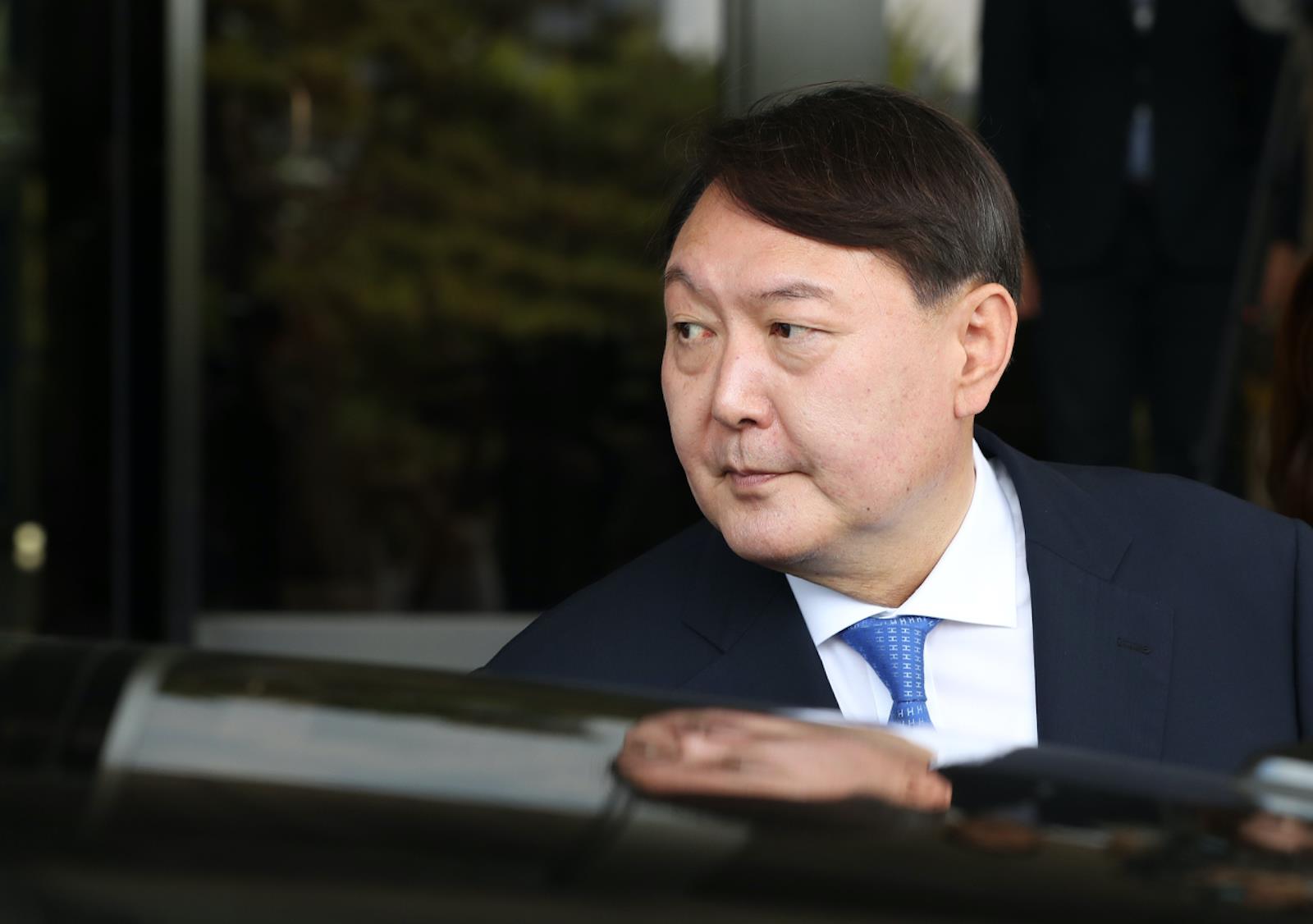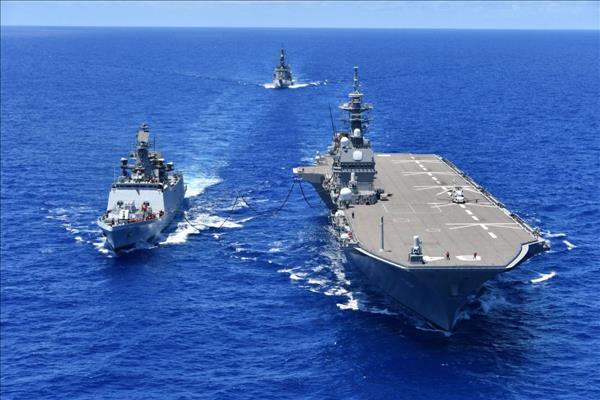
Quad Summit Outlines Wider Indo-Pacific Ambitions
SEOUL – The leaders of the Quadrilateral Security Dialogue, or Quad, met today in Tokyo, the second formal meeting of the US-led grouping that ultimately seeks to counter China's rise and influence.
There were photo ops a-plenty as Australia's newly minted Prime Minister Anthony Albanese, Indian Prime Minister Narendra Modi, Japanese Prime Minister Fumio Kishida and US President Joe Biden took part in a four-way meeting and a series of bilaterals on the sidelines.
The meeting follows hot on the heels of a shock statement Biden – on the first Asia tour of his presidency – made in a press conference yesterday (May 23) when he announced that the US was committed to the defense of Taiwan. That unscripted comment was quickly walked back by White House handlers, but nevertheless stormed across global headlines.
And Biden – who has twice previously made similarly punchy statements on the defense of Taiwan – was in no mood to defuse his remarks today.“The policy has not changed at all,” he said today according to news reports from Tokyo.“I stated that when I made my statement yesterday.
The Taiwan confusion and brouhaha – or, if you prefer, the masterly practice of strategic ambiguity – somewhat overshadowed the launch, also yesterday, of the Indo-Pacific Economic Framework, or IPEF. All Quad members are founding members of the new IPEF, America's nascent strategy to reassert a sustainable regional presence.
Both groups put Washington back into the center of the kind of regional, multilateral partnerships that Biden's predecessor Donald Trump had downplayed to regional alarm.
The Quad was originally birthed in 2004, but did little until recently. It was reborn into its present format in 2017 – a time when China was looking both more assertive and more powerful. Today's summit was the Quad's second, following a 2021 meeting.
Despite the considerable power of the Quad's four members, they are seeking wider security relationships in the region and beyond. One reason for this is because the Quad is a long way from being – or ever becoming – anything like an“Asian NATO.”

US President Joe Biden is seeking to put America back into the center of regional affairs following the dislocation of the Trump years. Here, he attends a press conference at the Akasaka Palace in Tokyo, May 23, 2022. Photo: Pool / Handout
In a joint statement , the Quad made a“steadfast commitment to a free and open Indo-Pacific that is inclusive and resilient.”
“We strongly support the principles of freedom, rule of law, democratic values, sovereignty and territorial integrity, peaceful settlement of disputes without resorting to threat or use of force, any unilateral attempt to change the status quo, and freedom of navigation and overflight,” the statement continued.
It also spoke to Association of Southeast Asian Nations (ASEAN) centrality, welcomed a European role in the region and vowed to strengthen cooperation with Pacific Islands – seen as the latest front in China's regional influence expansion.
That the group is China-facing is no secret – as the statement's language made clear.“We will champion adherence to international law, particularly as reflected in the UN Convention on the Law of the Sea (UNCLOS), and the maintenance of freedom of navigation and overflight, to meet challenges to the maritime rules-based order, including in the East and South China Seas.”
The latter point speaks to concerns about maritime territories whose ownerships are disputed with China. Beyond security, the Quad was also looking at infrastructure investment – an area China is massively invested in across the region and the world.
The Quad,“…will seek to extend more than US$50 billion of infrastructure assistance and investment in the Indo-Pacific, over the next five years.” On the finance front,“We will work to strengthen capacities of the countries in need to cope with debt issues” which would be done by“promoting debt sustainability and transparency in close collaboration with finance authorities of relevant countries” and through the“Quad Debt Management Resource Portal.”
With some countries accusing Chinese fishing fleets of being hybrid naval assets, the Quad raised a fishing protection initiative.“We welcome a new maritime domain awareness initiative, the Indo-Pacific Partnership for Maritime Domain Awareness (IPMDA), designed to work with regional partners to respond to humanitarian and natural disasters, and combat illegal fishing,” the statement read.
There were also statements on Covid recovery, climate change and space. What is lacking is firm commitments and actual timelines. But that is reflective of the nature of the Quad.
For all flashbulbs exploding over Biden's presence in Tokyo, both the IPEC and Quad are still more talk than action.
The IPEF is essentially a dialog grouping that seeks to set rules: it does not offer group members access to the US market or aim to cut tariffs the way free-trade pacts such as the Beijing-led RCEP (Regional Comprehensive Economic Partnership) or the Tokyo-led CPTPP (Comprehensive Agreement for a Progressive Trans-Pacific Partnership) do.
Likewise, the Quad is more of a security-focused dialog partnership than a military alliance. It lacks the commitments that underwrite organizations linked by multinational defense treaties such as NATO. It also lacks enforcement mechanisms.
“It is not an alliance, it is a dialog mechanism that aims to get partners discussing major security issues in the region,” Jeffrey Robertson an associate professor of diplomacy at Seoul's Yonsei University told Asia Times.
“Any security alliance is a major step, but you need dialog and understanding between partners, so somewhere down the track, it could go in that direction but at this stage it is about getting partners on the same page,” he said.
When it comes to occupying the strategic page, India is the odd man out.
Though it faces Chinese strategic competition in both the Himalayas and the Indian Ocean it has not, unlike the other partners, condemned or sanctioned Russia over the latter's invasion of Ukraine. Traditionally non-aligned, New Delhi is deeply reliant upon Moscow for weapons, though some indigenization moves are underway in the local armaments industry.
“China is the factor that pushed us toward the Quad,” Lakhvinder Singh, an academic specializing in peace and security studies at the Asia Institute in Seoul, told Asia Times.“I think Modi is putting on a brave face, because New Delhi is a divided house – divided between pro-US and pro-Russia factions. It is unable to take a final position and this is problematic.”
While Biden and Kishida look closely aligned on China, there are questions hanging over Australia's Albanese, who just defeated Scott Morrison in a general election.
Morrison oversaw an unprecedented trade spat that divided Australia and China but multiple players suggest that while the outgoing premier used that animosity for domestic political gain, Canberra will remain on-side on points of principle.
“The new Labor government will be much more diplomatic in working with China – the previous was more rhetoric, more bullhorn,” said Robertson.“Australia always works very closely with Washington and Japan, but the previous government's talk on China was more focused on domestic politics and that is not a good recipe for foreign policy.”

An Indian army soldier in a bilateral exercise involving the armies of India and the United States. Photo: Staff Sgt. Crista Yazzie / US Army, Pacific Public Affairs
Quad members Australia and Japan both enjoy separate mutual defense treaties with the United States. But in January this year, the two signed a Reciprocal Access Agreement (RAA), allowing closer military cooperation including in terms of deploying personnel and equipment to each other, while also upgrading interoperability.
Both capitals are also looking beyond the region. In September 2021, in a surprise announcement, Canberra joined London and Washington to announce the AUKUS agreement, a defense arrangement centered around supplying Canberra with nuclear submarines.
Separately last month, Tokyo and London announced that they were commencing negotiations on an RAA, likely modeled on the Canberra-Tokyo deal. The Boris Johnson government in the UK seeks to pivot east, and last year sailed its new aircraft carrier battlegroup through the region to mixed responses: Distaste from China, a subdued welcome from ASEAN and applause from Japan and the US.
Japan has also been busily signing deals with Southeast Asian countries, a key influence battleground with China, which is heavily invested in the region but also engaged in territorial disputes with multiple ASEAN members.
In May, Bangkok and Tokyo agreed to a deal that would enable the transfer of Japanese defense equipment to Thailand and allow Japanese investment in the country's arms sector.
Japan had previously signed similar deals with Indonesia, Malaysia, the Philippines and Vietnam. All these nations apart from Thailand have maritime disputes with China in the South China Sea.
While Japan may be seeking to expand the size and scope of its local arms industry, it is upping its defense posture in a gradualist but increasingly assertive manner. In recent years, it has conducted joint drills in waters far beyond its own littoral, including off of India, the Philippines and Singapore.
And the Quad may soon get another member – a development that would require a name change for the grouping. New South Korean President Yoon Suk-yeol, who was elected last month, has announced that he wishes to join Quad working groups – a preliminary to applying for membership.

Yoon Seok-youl is looking toward joining the Quad. Photo: Facebook
New Zealand and Vietnam are also potential new members. According to one expert, two related but opposed dynamics are driving this hurricane of paper signing: A rising China and a wobbling America.
“More than anything else, it is China's behavior – in the South China Sea, in contested regions with South Korea and Japan – that has caused states in the region to rethink their security and that means working with their main partner, the US, but also looking at other options and partners,” said Roberston.
“But US behaviors under Donald Trump also gave everyone a scare – so the entire region is, I guess, concerned about the future.”

Legal Disclaimer:
MENAFN provides the
information “as is” without warranty of any kind. We do not accept
any responsibility or liability for the accuracy, content, images,
videos, licenses, completeness, legality, or reliability of the information
contained in this article. If you have any complaints or copyright
issues related to this article, kindly contact the provider above.

















Comments
No comment